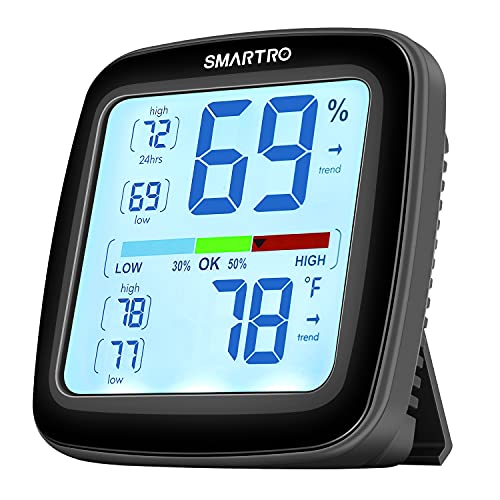Dehumidifiers provide a lot of benefits for your home. However, choosing the perfect size is crucial for your home’s protection. But can it be too large for your home? We have found answers for you.
Indeed, a dehumidifier can be too big for a specific place inside your home.
A bigger dehumidifier than the area means you can consume more electricity than before. However, it depends on the duration, humidity, and the kind of dehumidifier you are using.
In this article, we want to answer all of your concerns in mind. So, better continue reading and we always got you.

What are the problems encountered by having a too-big dehumidifier?
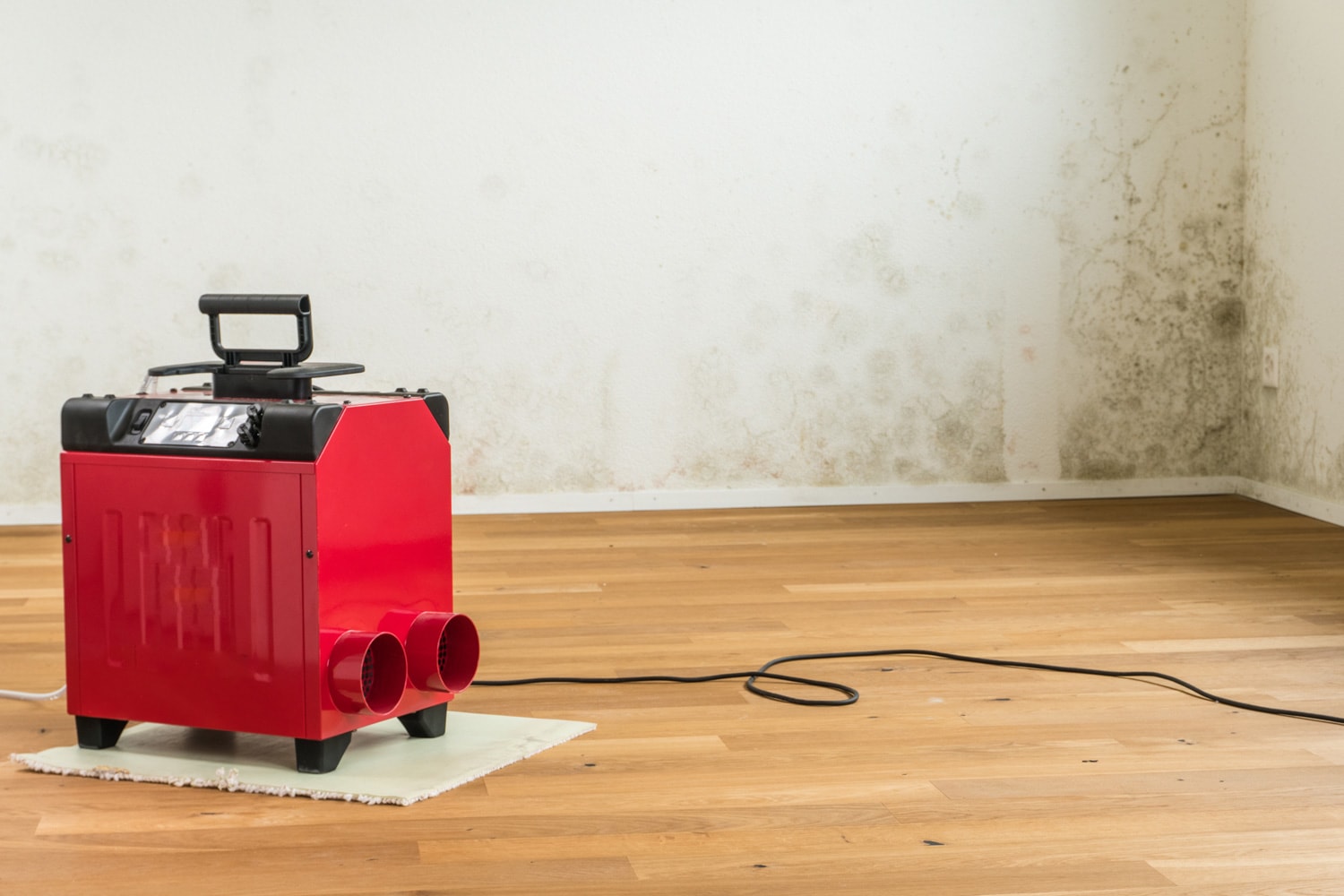
Professionals recommend the use of a bigger dehumidifier. Having a larger dehumidifier than the recommended size indicates increased convenience, effectiveness, and efficiency.
However, expect some problems which may arise during the duration of the operation. We'll look at some potential problems and how to address them:
Noise
There are two major components of refrigerant dehumidifiers – the fan and the compressor. When the unit operates, it emits sound produced by the fan.
Larger dehumidifiers do generally produce more noise during operation. However, if your dehumidifier has an option to run at a lower capacity, you may be able to run it on a quieter setting.
Increased Electric Consumption
You may expect that a large dehumidifier consumes more energy than a smaller unit. This is certainly the case if they are left to run continuously.
However, this is not a real problem with most newer models.
We know you are wondering how this is possible. Many dehumidifiers automatically turn off once they achieve the desired humidity in a certain space. If your unit is large for the space, the unit will quickly turn off, thus saving your power consumption.
If you are using an oversized dehumidifier, look for one with sensors that turn it off automatically.
Extreme dryness
Another problem that you could encounter is the excessive dryness. This happens for manual operation units which lack humidity control.
The dehumidifier will still continue to operate regardless of the required humidity which leads to dryness. In addition, extreme dryness could lead to dry skin, known as atopic dermatitis.
For this reason, it's best to opt for an automatic dehumidifier or be prepared to monitor it closely.
How Big Should a Dehumidifier be?
Excessive moisture can lead to the accumulation of molds and mildew. This is why we need dehumidifiers to eliminate the high level of humidity.
This will prevent the musty smell of your home and protect all of your clothes, electronics, wallpapers, and other essential things.
If the room varies in dampness levels, then it should need a different size dehumidifier. This will ensure that the unit could function efficiently.
This dehumidifier is perfect for medium to large rooms. You can check it on Amazon.
How to Choose the Right Dehumidifier for Your Home
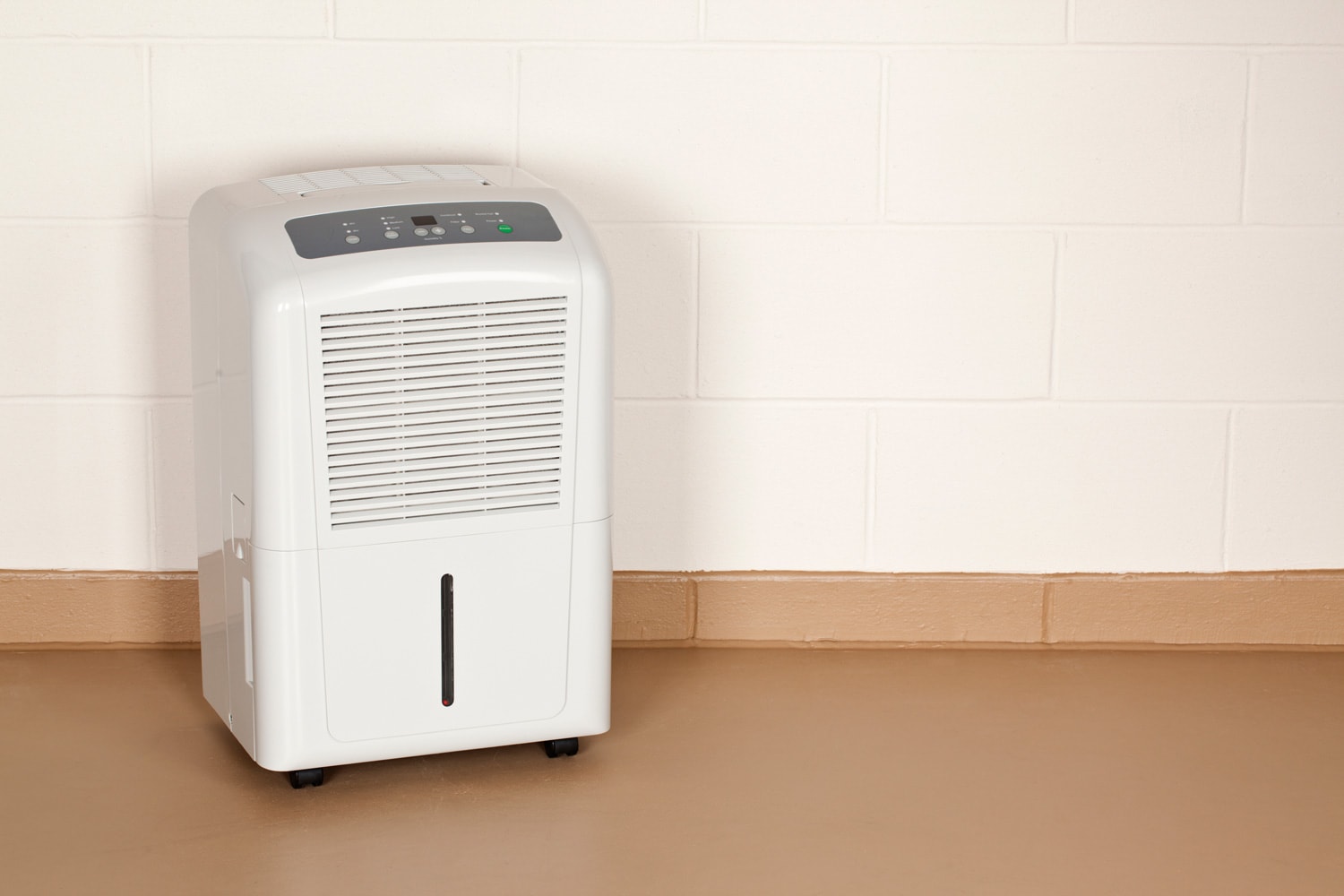
From here, we can help you choose the right dehumidifier for your home.
Air quality can be affected in many ways. One of these is excessive humidity. If left uncontrolled, this can lead to several problems inside your home. These problems include but are not limited to molds, peeling paint, distorted wood, and stale odors.
How can you deal with the situation? The answer must be the use of a dehumidifier.
Let's take a look at how to choose the best one for your home.
Check for excess moisture.
Determine the signs of high-level humidity.
- Foggy windows
- Moist air
- Visible mold
- Rotting wood
- Severe allergies
If any of these signs are present in your home, excess humidity is a likely culprit. You may want to consider purchasing a humidity gauge or a hygrometer. It monitors the air quality of your home.
For most homes, a humidity level which ranges from 30 to 60 percent is acceptable, but tightening it from 30 to 50 percent will ensure that the home has comfortable air to breathe.
A humidity level that is higher than the normal range should be a call for a dehumidifier.
Determine the problem.
Is your house excessively humid? Depending on the scope of the problem, different solutions may be preferable.
A dehumidifier built into the HVAC system is great for the entire house. It has a drainpipe that empties directly into the sink. However, this type of dehumidifier is not cheap and requires professional installation.
Meanwhile, portable dehumidifiers are cheap and consumer-friendly. You can put it directly onto the wall and operate via a built-in interface which you can easily understand and control.
Many portable dehumidifiers use built-in hoses that drain and pump water automatically.
What size do you need?
Even if the dehumidifier has the same style and design, they can also differ when it comes to their capacity.
Dehumidifier capacity is measured in pints. You may go for a small size that holds up to 10 pints of water desired for a 500 sq. ft. space. Add 4 pints of water for every 500 sq. ft. of space.
For example, for a 1000 sq. ft. space, you will need to add 4 pints to the base 10. This adds up to a 14-pint water capacity.
If your space is particularly damp, it may be better to have a bigger dehumidifier to remove the high level of moisture from the air effectively.
The Pros and Cons of a Dehumidifier
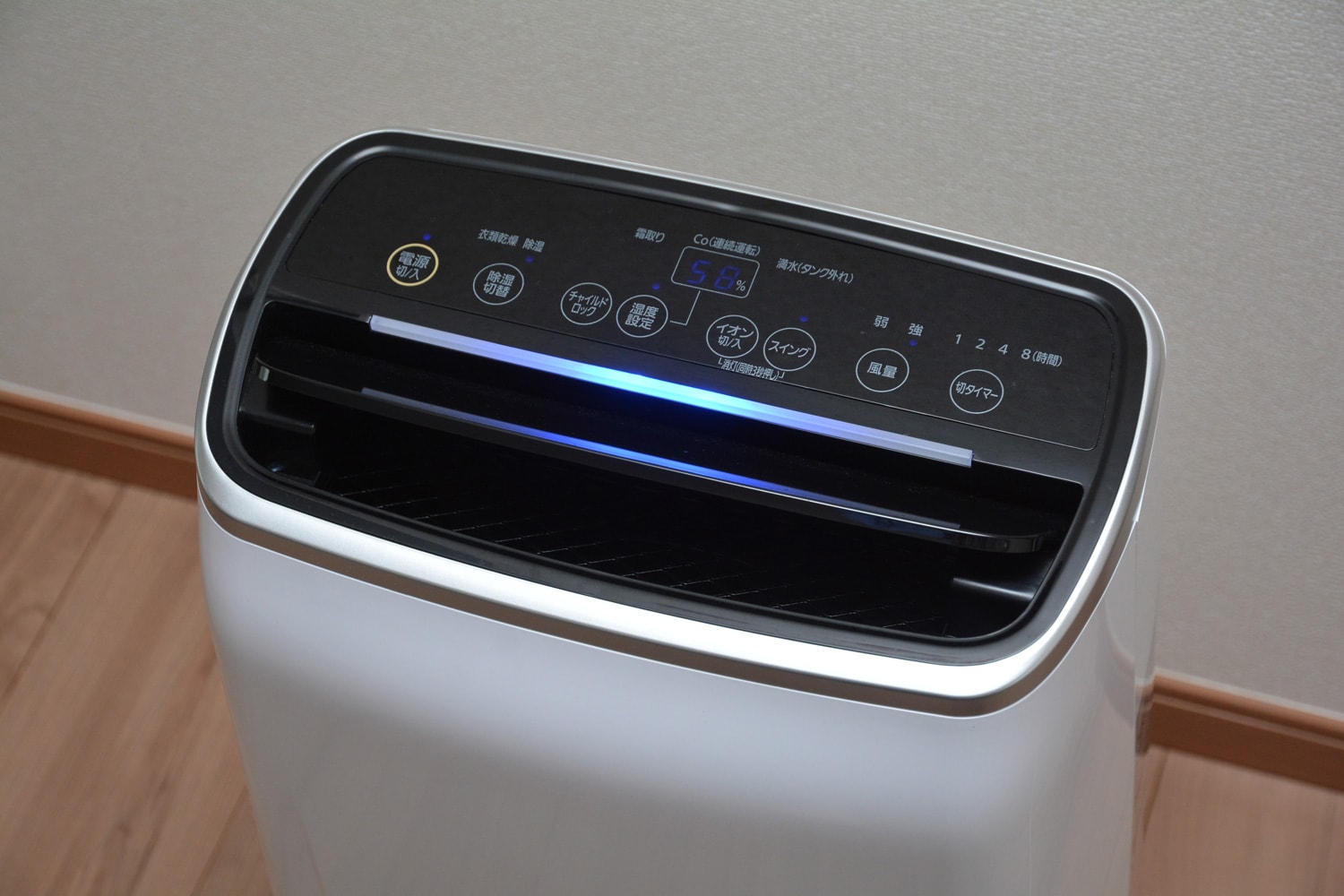
A high level of humidity is potentially damaging to your home. Furthermore, because of issues like mold and mildew, it can also be dangerous to your health.
The biggest advantage of using a dehumidifier is combatting these problems. However, that doesn't mean that dehumidifiers are without problems
A common mistake made with dehumidifiers is buying and using one unnecessarily. When you use a dehumidifier even if the spaces do not have any signs of dampness, it will result in excessive dryness of the environment.
Below are more of the pros and cons of a dehumidifier. After reading, you can have a better understanding of ideas as to whether or not you use a dehumidifier.
Pros:
- A dehumidifier controls and reduces the number of dust particles in the air.
- Molds, mildew, dust mites, and allergens thrive in humid areas. Therefore, humidity testing is required to lessen these problems.
- Moisture attracts small insects. The dehumidifier will prevent the accumulation of those pests.
- If your home has a musty smell, it could get rid of the odor. These foul smells could cause the dampness of the house.
- Regular use of a dehumidifier ensures that no mold spores could grow into your home’s essentials, such as furniture, clothing, beddings, and the like.
- Dehumidifiers will help your AC run smoothly.
- If you are prone to certain allergies, keep running a dehumidifier because it keeps everyone in your home safe and healthy.
Cons:
- Dehumidifiers can be annoying because it produces noise and, at times, heat during summer.
- Constant use of a dehumidifier increases your electric bill.
- Dehumidifiers are high maintenance. You must clean the filter and refill the water tank regularly. To prevent this hassle, you can opt for a draining hose just a floor-level type to empty the water collection bin.
- The best dehumidifier for your home is pricey. You need to get the right size that fits your room. If you want to reap all the benefits of having one, then go for the trusted brand and quality.
In Conclusion
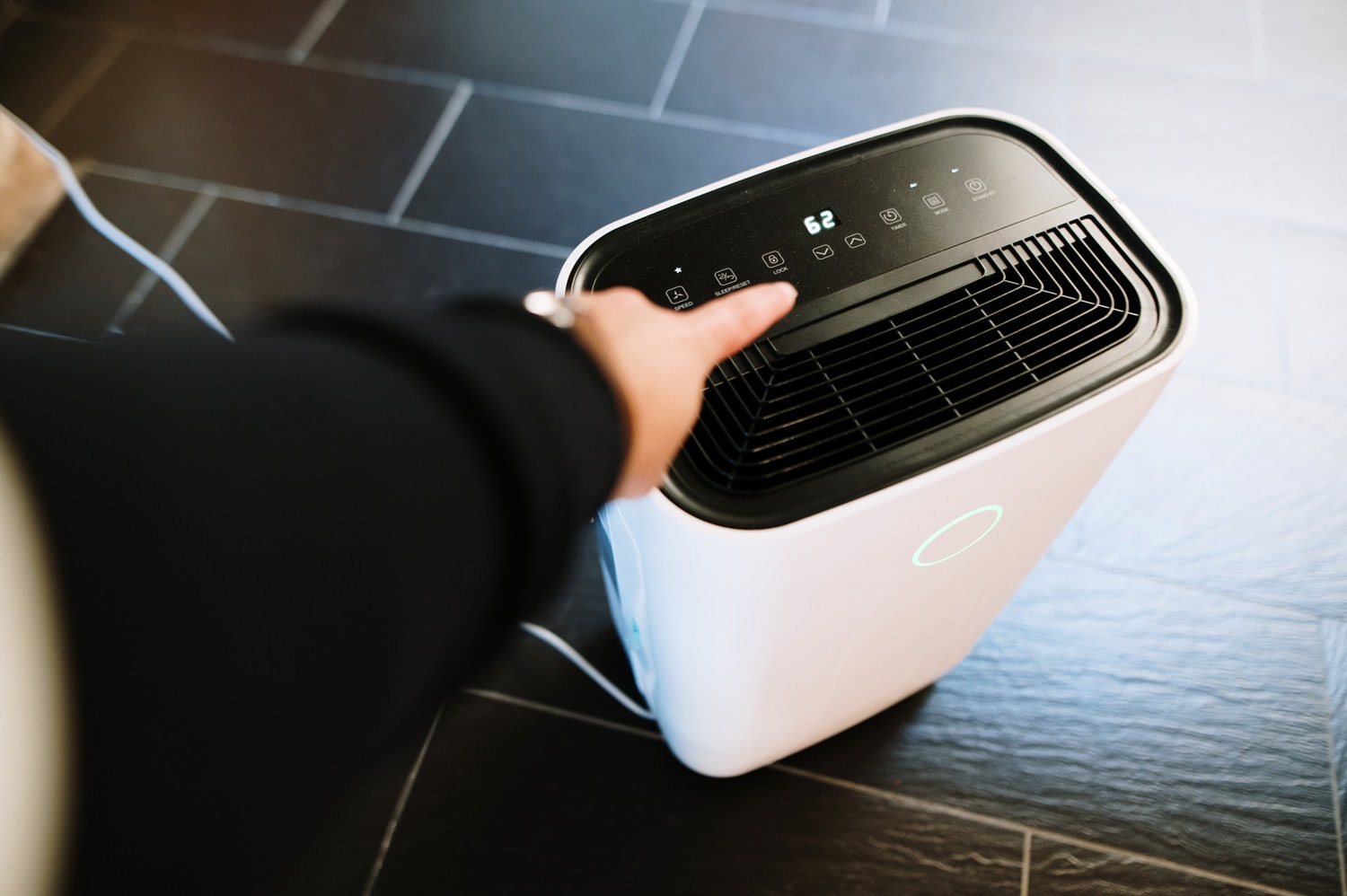
Now you know more about how to choose the best size of dehumidifier for your home. We've also seen some of the possible pitfalls of oversized dehumidifiers and how to address them.
If you enjoyed reading this article, you may want to check these related posts:
Can You Have a Whole House Dehumidifier Without Ducts?


